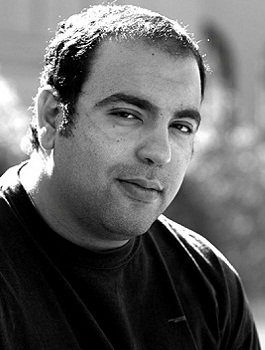By Oxford Business Group
Jordan is fast turning medical tourism into a mainstay of the kingdom’s economy, with the sector likely to soon turn a healthy profit thanks to the high levels of public and private investment in hospitals, medical facilities and staff training.
Jordan is well established in the medical tourism sector, having welcomed foreign patients to its health facilities for more than two decades.
According to figures issued by the Jordan Enterprise Development Corporation, the country earned $1.4 billion from the medical tourism sector in 2009 from 220,000 foreign visitors seeking treatment – a 10 percent rise in medical tourists from last year.
A breakdown of 2009 figures compiled by Jordan’s Private Hospitals Association show that Iraqis were by far the largest patient group treated in the country’s hospitals, accounting for 19 percent of the total. This was followed by Palestinians, who made up 16 percent of the patient pool; Saudi Arabians with 15 percent; Yemeni patients next with 14 percent and Sudanese and Libyan patients at 13 percent and 9 percent, respectively.
The remaining 14 percent included patients from a further 36 countries, demonstrating the fact that Jordan’s medical tourism sector is currently heavily reliant on a few neighboring states for the vast majority of its activity.
According to a World Bank study, Jordan is ranked first in the region and fifth globally as a medical tourism destination, though it will be facing increasing competition in the coming years, with other Middle Eastern nations looking to cash in on the potential health windfall.
Dubai is actively investing to promote medical tourism and in early October signed a memorandum of understanding with the Medical Tourism Association committing the two parties to co-operate in developing the sector in the emirate, while Saudi Arabia is also stepping up efforts to raise its medical tourism profile.
The revenue generated by the Jordanian health services may also come under pressure as other countries in the region, notably states such as Iraq, improve the standards of their domestic medical facilities and those of professional service providers.
In recognition of the potential for the patient pool in the region to be partly drained, Jordan has begun looking further a field for clients, promoting its medical services in the US and Europe.
In early October, Jordan and Romania agreed to bolster cooperation in the health sector, with Bucharest offering to help train doctors in specialized emergency services, while there are also plans to export Jordanian-made pharmaceuticals to Romania. According to Romanian Health Minister Attila Cseke, there was the potential for medical tourists from his country to come to Jordan as long as the fees charged were lower than those in other countries.
Jordan’s efforts to enter the Romanian market are just the latest step in a far longer campaign to broaden the scope of its medical tourism sector. In 2009, Jordan began actively promoting its medical services in the US, aiming to capture a share of the growing market for overseas health provision there.
While it may be early days, Jordan has made some impact in the American market, with the US now ranked in the top 10 countries sending patients for treatment in the kingdom, though this still represents a fraction of the total.
Though some other countries in the region are trying to generate interest in their own medical tourism services, seeking to attract foreign patients while also encouraging their own nationals to utilize local care facilities, Jordan does enjoy a number of advantages.
One of the strongest selling points that Jordan’s health tourism industry has is its cost factor, with the fees for many procedures being less than 25 percent those charged in the US This, combined with the acknowledged quality of the country’s medical facilities and staff, with most of Jordan’s hospitals having gained internationally accepted accreditation, mean that overseas patients can be treated to the highest standards but at a fraction of the cost.
Jordan also enjoys the advantage over many of its regional rivals of not requiring visas for citizens of many countries, or being able to offer visas on arrival, appealing to weary travelers not in the best of health.
As long as Jordan can continue to increase the numbers of US medical tourists, who represent the largest and most lucrative segment of the market, the kingdom’s health sector should be able to shrug off any losses of clients to regional rivals, further building its reputation as a service provider of the highest quality while at the same time improving the health of the economy.


